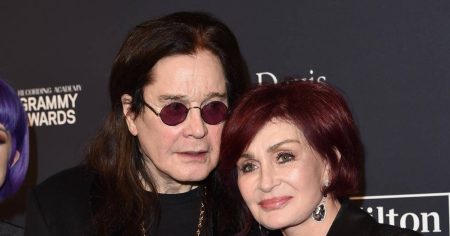A legal battle is unfolding between rapper Jay-Z (Shawn Carter) and attorney Tony Buzbee, stemming from a civil lawsuit accusing Jay-Z and Sean “Diddy” Combs of raping a 13-year-old girl in 2000. The alleged assault is said to have taken place at an afterparty for the MTV Music Video Awards. Jay-Z vehemently denies the allegations, expressing anguish over the potential impact on his family and condemning the lawsuit as a malicious attempt to destroy families. He directly accuses Buzbee of exploiting people for personal gain and questions his credibility.
Buzbee, a Texas-based lawyer, gained notoriety earlier this year representing numerous clients alleging misconduct against Diddy, who also denies all accusations. Buzbee previously hinted at lawsuits against other celebrities, and the case involving Jay-Z appears to be part of this broader legal offensive. Adding another layer of complexity, an anonymous male celebrity, later revealed to be Jay-Z, filed a lawsuit against Buzbee, accusing him of extortion and threatening to publicize false sexual assault allegations unless demands were met. This preemptive legal action by Jay-Z suggests a belief that Buzbee’s lawsuit was a calculated attempt to extract money through threats and public pressure.
The lawsuit against Jay-Z and Diddy was initially filed naming only Diddy, with Jay-Z added later in an amended complaint. The anonymous accuser, “Jane Doe,” claims she was raped by both men. Both Jay-Z and Diddy deny the allegations, with Diddy’s lawyers characterizing the lawsuits as publicity stunts aimed at extracting payments through the dissemination of false information. This countersuit against Buzbee and the addition of Jay-Z to the original lawsuit complicates the narrative and raises questions about the motivations and veracity of the involved parties.
Jay-Z publicly denounced Buzbee, accusing him of blackmail and lacking honor and dignity. He challenged Buzbee to file criminal charges instead of a civil suit if the allegations were true, emphasizing the seriousness of such crimes against minors. In response, Jane Doe, through Buzbee, denied ever demanding money from Jay-Z, stating her only request was for confidential mediation. This conflicting account of the pre-lawsuit interactions further muddies the waters, leaving room for interpretation about the nature of the communication between the parties.
Jay-Z’s legal team filed a motion to dismiss the lawsuit, citing a lack of subject matter jurisdiction and questioning the plaintiff’s standing. They argued that the plaintiff had not provided sufficient evidence to justify anonymity. This legal maneuver aims to challenge the validity of the lawsuit on procedural grounds. Concurrently, Buzbee filed a motion to allow Jane Doe to proceed anonymously, a request subsequently objected to and challenged by Jay-Z’s legal team. This back-and-forth of legal motions underscores the strategic maneuvering and adversarial nature of the proceedings.
Further legal action by Jay-Z’s attorney, Alex Spiro, alleges that Buzbee engaged in extortion by threatening to publicize false allegations unless Jay-Z paid a sum of money. Spiro also claims Buzbee admitted to not investigating the merits of Jane Doe’s claims before filing the lawsuit, a violation of Rule 11, which mandates reasonable inquiry into facts and law before filing legal documents. Spiro requested the court to order the preservation and production of all evidence, anticipating potential attempts by Buzbee to destroy incriminating materials. This escalation of accusations introduces the possibility of sanctions against Buzbee for alleged ethical violations.
In a retaliatory move, Buzbee filed a separate lawsuit in Texas against Roc Nation and Jay-Z’s legal team, accusing them of bribery, threats, and impersonating state officials. Buzbee alleges a campaign of intimidation and harassment against his firm, employees, family members, and clients. He claims private investigators were employed to carry out these actions and is seeking $25 million in damages. This countersuit broadens the scope of the legal conflict, introducing new allegations of misconduct against Jay-Z’s associates and legal representatives. A judge subsequently denied Buzbee’s request for a temporary restraining order in this Texas lawsuit. The ongoing legal battle continues to evolve, with both sides exchanging accusations and engaging in strategic legal maneuvering.










